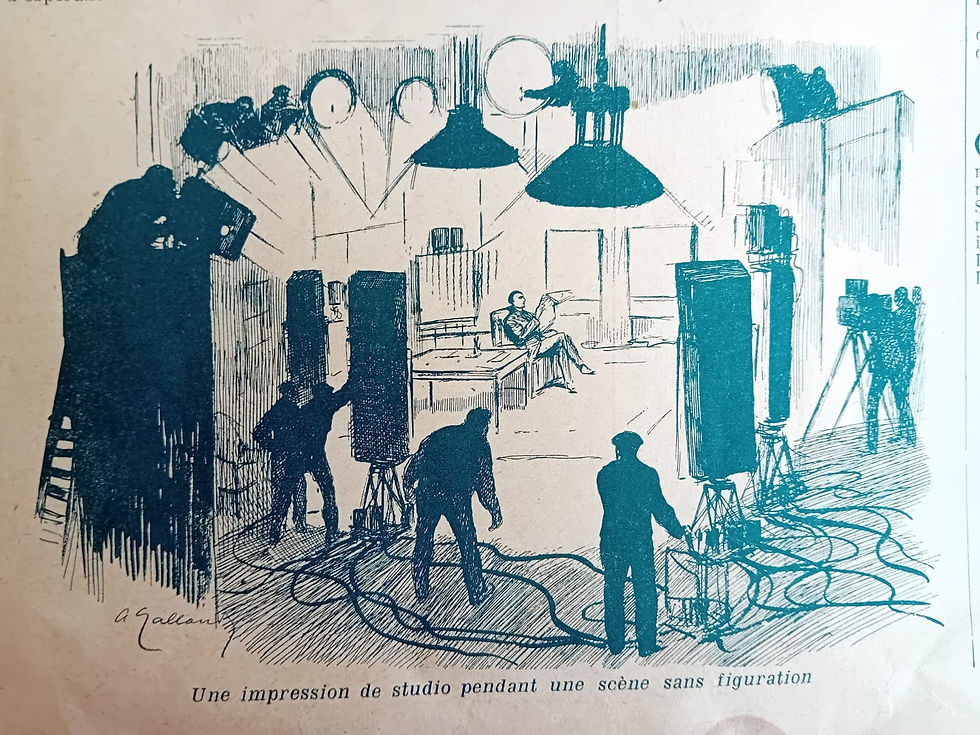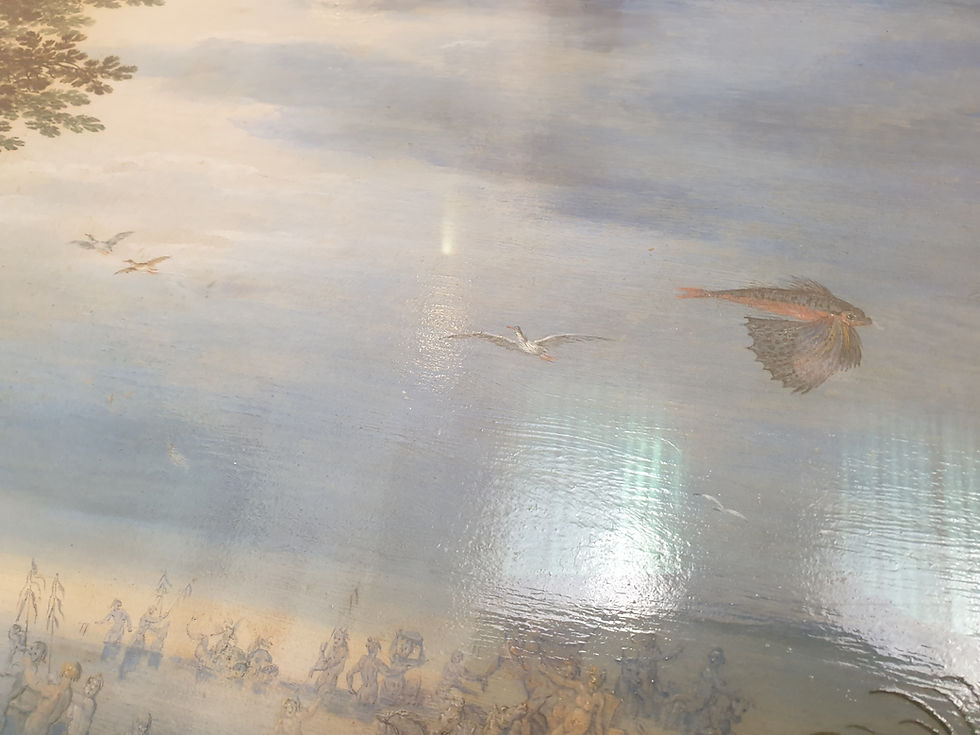CINENOVELS at IDFA
- Marina Drozdova

- Dec 2, 2022
- 5 min read
Updated: Sep 16, 2023

Reflections on IDFA 2022 Winners and Program
“Apolonia, Apolonia,” director Lea Glob (Denmark, Poland, France), predictably won the main award: Best Film. This is a real cinenovel. The film’s heroine — a young lady, Apolonia Sokol — seeks to find a place of her own in art, any place; better yet — a place in the history of art; even better — in an encyclopedia. Her life is already a novel: she was practically born onstage of a small Parisian underground theater, owned by her parents, and immediately became a rightful denizen of the bohemian backstage. The documentary’s director commented that, when she first spoke with Apolonia on Skype, she felt as if already in a film: “watching this woman on the screen . . . while a lot of people entered the frame and exited it. There was this whole narrative just going on already” (www.idfa.nl).

Typical of 2022 festival programs, the psychological novel genre wins over other genres. Perhaps, catastrophic sensations of the pandemic period have led to this. Simultaneously, the experience of life in confined spaces may have provoked authors and characters to tend to their emotional and psychological states. General disillusionment with facts and reportage may be another reason.
The festival programs feature a range of full-fledged novels with complex inner twists and turns facilitating vivid dramaturgy, whether accompanied by external events or not. The plot intrudes into the characters’ state of crisis and develops until resolution. An episode of one of the films (“Still Static”) portrays a metaphorical mise en scène: instead of a camera, a cameraman controls a sewing machine, guiding and cutting threads. Naturally, connotations emerge.

For example, the threads Somerset Maugham wrote about, rather didactically: “After all, a man could derive satisfaction from choosing various threads, which he weaves into the endless fabric of life . . . one pattern exists — the simplest and most beautiful — . . . but there are others, more intricate and amazing patterns, concealing, perhaps, some unique and alarming beauty.” Not to mention, the Moirai sisters who wield the threads of human destiny. But directors of these films are not voyeurs; they experience life with their characters.
Returning to “Apolonia, Apolonia”: In the first few minutes of the film, we see how the heroine ruffles through video tapes in a cluttered apartment and finds footage of the moment of her conception — the young couple was that fond of amateur cinema; although they did mark the tape “NC-17.” Then the young future parents celebrate this moment. Then many other things happen and, behold, they are already divorced, while Apolonia is trying to make her way as an artist — via New York and other cities. She returns to Paris, experiences poverty and relative prosperity, settles down with a theater troupe, but the theater eventually goes bankrupt and closes, and now she has nowhere to live. In parallel, she develops a caring friendship with Oksana, a scatterbrained (seemingly, but not indeed) Ukrainian artist and political activist. Meanwhile, Apolonia, in fact, turns out to be a good artist — but falls into indifferent nets spread by art-dealers. However, now unstoppable, she continues to take lessons, to paint and paint — regardless of the chaos in her head and life; despite the ubiquitous clutter she braves every day navigating from dreams to reality, from a cup of coffee to the easel.
The director, Lea Glob, captures 13 tumultuous years in the life of Apolonia Sokol. Earlier, Glob co-directed “Venus” with Mette Carla Albrechtsen in 2016 and “Olmo & the Seagull” with Oscar-nominated Petra Costa in 2014. “I didn’t know what kind of an artist Apolonia would become,” says the director, “but it was clear from the very start of filming that she has the sort of face that attracts the camera.”
Apolonia wins her race — achieves a solo exhibition, creates intelligent paintings; Oksana finally succeeds in her suicide attempts; the director nearly becomes disabled after childbirth. Such is the novel.
Best Directing:“Much Ado About Dying”, director Simon Chambers (Ireland, United Kingdom), is also an obvious jury choice. It is likewise a great psycho-neurotic novel, on a Shakespearian scale. An 80-year-old London uncle summons his nephew, a film director, to document the last days/years of his existence.

Reclining in a tub, he quotes Shakespeare and declares that, “I’m a bubbling person.” Continuing the recitation, he then paces in a negligee across his bachelor apartment, where no cleaner has set foot for the past half-century, and salutes his disease with remarks from “King Lear.” He was an actor, used to scandals and applause — and chose to indulge his petty passion by forcing his nephew to make a film about him. A tragicomedy.
“Malavoune Tango,” director Jean-Marc Lacaze (France, Réunion), develops the cinenovel genre in the direction of Julio Cortázar and his “Bestiario.”

On an island north of Madagascar, some young people with passport problems live alongside some dogs — their fates enigmatically entwine. The dogs save their two-legged friends from police brutality, forcing the latter to respect their strength. “If the dog gets respect, so do I.”
Returning to “Still Static,” Adam Kaplan (France), we see another amazing example of cinenovels. This story unfolds in the spirit of mystery novels. The filmmaker and visual artist, Adam Kaplan, portrays two people who have encountered something ghastly. Spectators never find out what exactly. But facts lose their relevance. What is left is only the experience of horror, arising from ordinary remarks such as, “in the wrong place, at the wrong time.” The characters are witnesses and victims of something that happened at a party, but they could only describe their microscopic sensations, more precisely, only flashes of sensations, nothing specific — yet the horror grows. This reminds one of the film, “Rope,” by Alfred Hitchcock — a macabre banquet, suspense.
The storytelling is simply magical in “Gigi la Legge: The Adventures of Gigi the Law,” Alessandro Comodin (Italy, France, Belgium). This is again a film about the director’s uncle — an emerging trend: previously, filmmakers favored parents when documenting older generations, now they show uncles. Here, we come across a surrealistic comedy. Gigi is a police officer in a lovely Italian province. Throughout the film, he drives around in a patrol car, basking in Friuli’s bright sunshine; he is jovial and sporting classic round-lens sunglasses. He indulges in double-entendre jokes, trying to spark a romance over the radio with a lady from his police station. A suicide on the railroad on this wonderful clear day sends Gigi into barely noticeable, but imperceptibly growing, prostration. He still has a ways to go from the usual bliss to despair, but the vector has surfaced and cannot be stopped. Meanwhile, Gigi turns into a parody of himself: becoming meaningless, somehow deflated. In the end, it turns out that Gigi is one of those sunshiny people, whose good intentions pave the way of random passers-by to Hell.




Comments